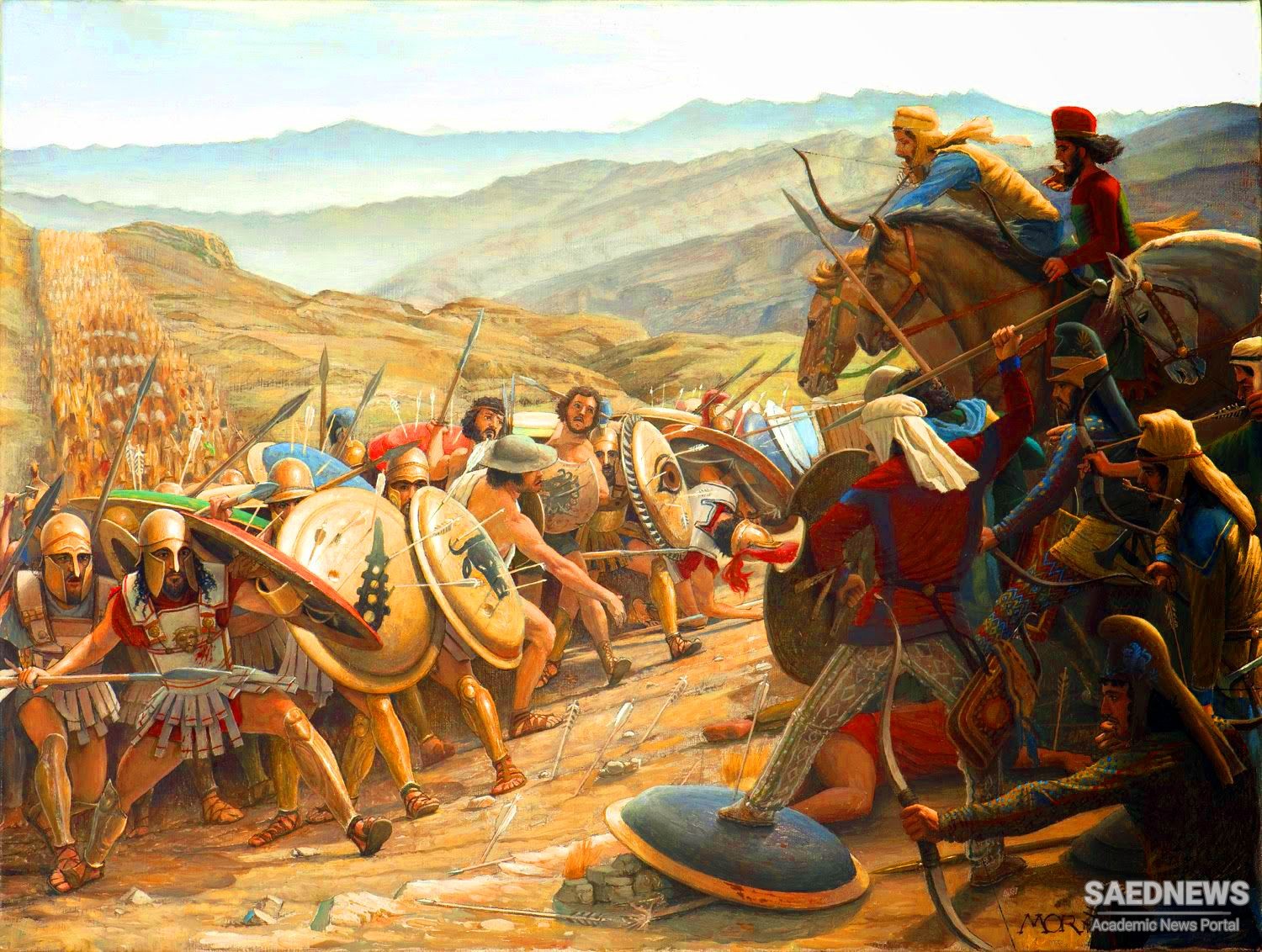Because descriptions of Achaemenid music have not yet been found in native Persian sources, they must be obtained fromthe writings of the ancient Greek historians. Herodotus, an observer of the Graeco-Persian wars, mentions the chanting of the Magi priests during a sacrifice. Xenophon, Athenaeus, and Strabo also offer descriptions of Persian military music. Both Greek and Roman historians chronicle the musical activities of the long period between the fall of the Achaemenid empire (330 B.c.) and the rise of the Sassanians (A.D. 226). The military nature of the contact of these great empires has limited the accounts of music to that of the armies and the singing girls who accompanied the Persian troops. From the Parthian period, hymns and epic poetry have survived, but there is as yet no information on the music accompanying either literary form.29 These sources do little more than indicate the existence of Persian music during this early period, offering no information on either music theory or practice. This is unfortunate, for the ancient period is particularly intriguing in view of the possible connections between Greek and Persian music. During the Achaemenid period, the Persians occupied sections of Greek Asia Minor and made several forays into mainland Greece. In return, the Greeks invaded Persia, and the first great Persian empire was conquered by Alexander. During the Seleucid period (fourth to third century B.C.), the Greeks founded cities in Persia, colonized them, and intermarried with Persian women. Moreover, the Hellenization of Persian culture did not end at the close of this era but continued during the Parthian period (third century B.C. to third century A.D.).Significant musical interchange likely occurred during this extensive period of contact between Greece and Persia. Although no fragments of music exist to document the interchange, it is strongly suggested by the many similarities between contemporary Persian music and what is known of ancient Greek music.Both musics are monophonie with some use of heterophony; both are improvised using melody types (nomoi and dastgah); and both are built on tetrachordal systems. If the connection between ancient Greek and Persian music could be substantiated, the study of contemporary Persian music with its readily available examples might be invaluable to an understanding of ancient Greek music, for which evidence is so sparse. That is, the anthropological technique of studying a tradition lost to one society but preserved in another more isolated or more conservative society, could be applied to the study of Greek music (Source: Persian Classical Music).



 Persian Classic Music in Its Historical Context
Persian Classic Music in Its Historical Context














































